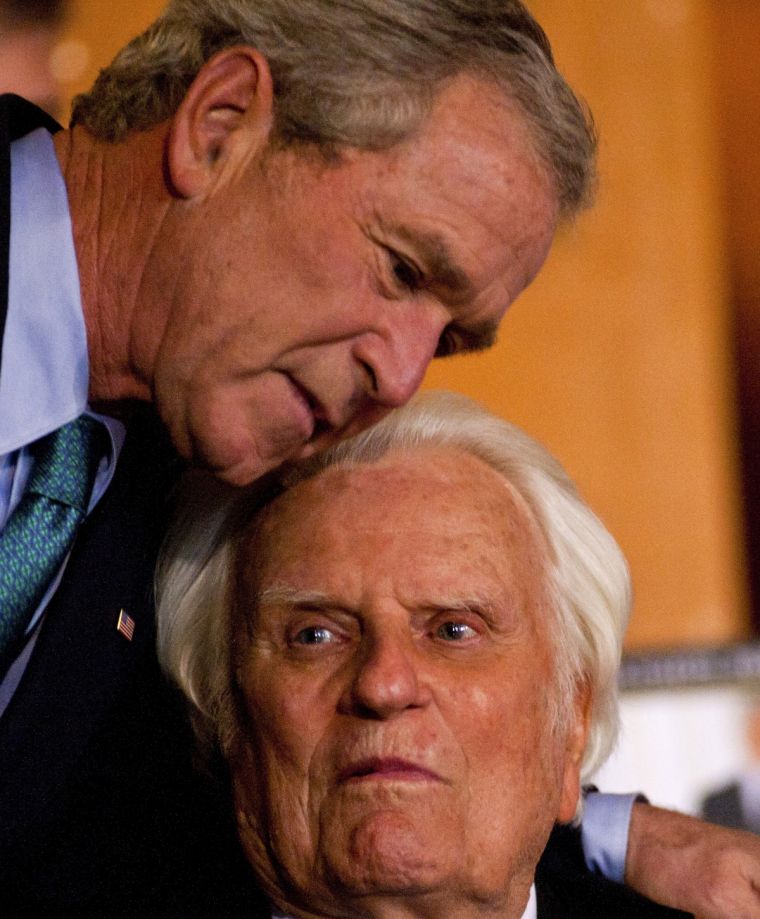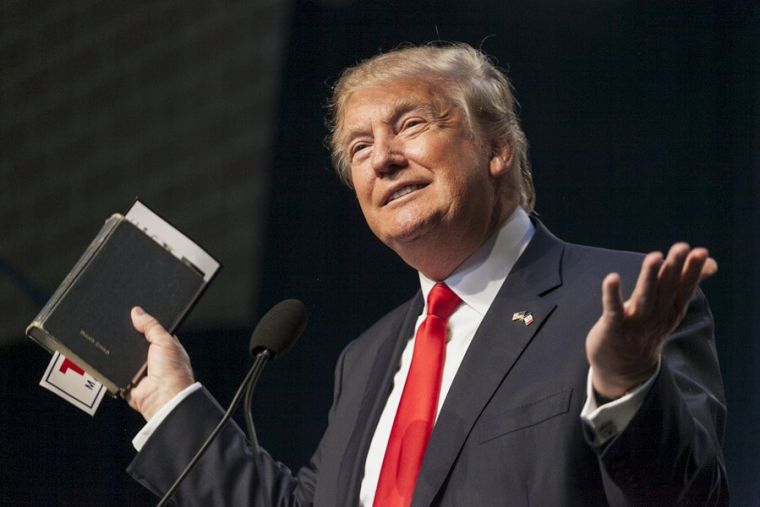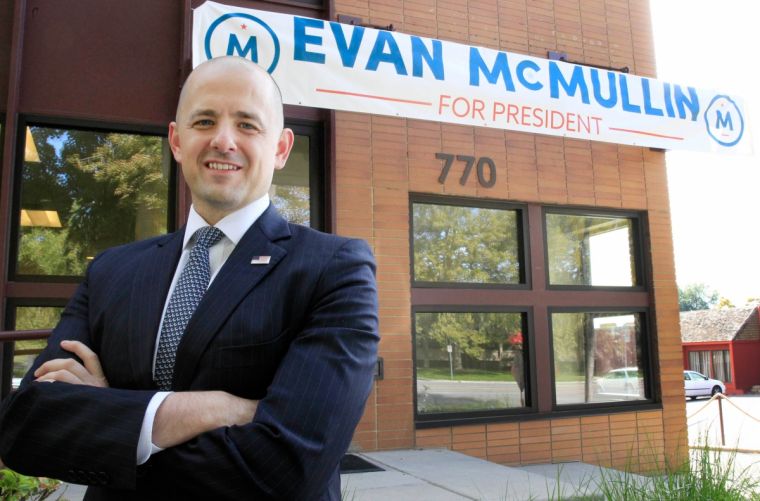Does Religion Help Or Hurt Our Political Decision-Making?
In the 2004 American election, I had deep misgivings about re-electing president George W Bush. He had launched the invasion of Iraq under what appeared to be false pretences and against the counsel of most nations. Domestically, I didn't think his policies were working as advertised. However, something kept me in the Republican fold during that election: Bush was an evangelical Christian like me.

True, some doubt had been cast on his Billy Graham conversion story, but despite Bush's perceived failures and flaws, I was hesitant to vote for Democratic challenger John Kerry based more or less on religion. Bush remained the guy who was supposed to share my values and saw the world in the same way.
In the aftermath of the 2004 election, the grave mistakes of the Iraq War came into sharper focus, and to this day the people of Iraq have suffered unimaginably under sectarian fighting and the horrors of ISIS. It's not that Iraq before the US invasion didn't have major problems. Rather, the people of Iraq share that they generally knew how to get by.
The excessive spending on military invasions overseas, slashed taxes and mismanagement of the economy left the US economy in a recession with fears of a major crash when Bush left office in 2008. I have often wondered why I voted for a man who was so ill-suited for the job where most measures clearly demonstrate he failed (with his major triumph being his humanitarian relief for AIDS treatment in Africa).
While I can point to several different factors, Bush's evangelical affiliation, however flimsy at the time, was enough to smooth over his rough edges. Looking back in retrospect, Bush had some credentials for the highest office in our land, but surely the Republican party had someone with more qualifications or experience for the job. However, those candidates didn't have the same name recognition and evangelical affiliation that Bush boasted.
If a candidate shares our religion, we tend to think we know how he/she thinks and will handle certain situations. However, religion is the most convenient cover in politics, obscuring actual experience and policy with perceived familiarity and religious rhetoric.
This is why Trump's charade in front of a select group of evangelical leaders was so important for his candidacy. He didn't just have to say he'd support evangelical aims. He waved his Bible around and James Dobson went as far as saying Trump's a baby Christian.

However, the role of religion in politics is even more striking in the candidacy of Evan McMullin. McMullin is certainly drawing interest because of dissatisfaction with Trump, his experience as a CIA operative in uncertain times and the testimony of superiors who claim he is honest and hard-working. However, if McMullin were applying to any other job with such intense demands and that multiple areas of expertise, his resume would surely get tossed from the pile early in the process.
While he certainly has the policies that conservatives desire, he doesn't have anything close to the experience of previous candidates doing the one thing a president is supposed to do: govern. He hasn't worked on legislation at the state or federal level. He hasn't forged alliances within a political party in order to manage the day-to-day challenges of running a world superpower. That isn't to say he couldn't be good at any of these things, but it would make a great deal more sense to vote for McMullin in a state or Congressional election rather than for the highest political office in our land.

So why is McMullin gaining traction where so many others have failed?
Religion.
McMullin is a Mormon who is extremely popular in Utah where Mormons have been drawn to his campaign much like evangelicals were drawn to Bush in 2000 and 2004. And if evangelicals have learned anything from George W Bush, it's that a candidate's religious affiliation tells us very little about the way he/she will govern, especially in light of his/her faith.
At its best, religion in politics helps guide our standards for moral actions, but at its worst, religion in politics becomes another ideology to affirm. We end up choosing candidates who may be grossly unqualified for their jobs and who may or may not even adhere to the religious principles they professed during their campaigns.
Most importantly, religion becomes a way that candidates make themselves 'likeable' for an election. However, once sworn into office, voters actually need candidates who are capable of governing and adhering to their religious principles while governing. Choosing an unqualified candidate based on his or her religion without a proven track record of governing, let alone governing in line with his/her religious principles, is a risk evangelicals like myself have taken one too many times.
While religion should certainly be a factor in how we choose candidates, it has become more of a rhetorical smoke screen for the 2016 presidential election in America. It may prove far more helpful to consider how our candidates with past political experience, such as Hillary Clinton and Gary Johnson, may actually govern once elected.
Ed Cyzewski (MDiv) is the author of Pray, Write, Grow, A Christian Survival Guide, and The Contemplative Writer. He writes at www.edcyzewski.com and is on Twitter as @edcyzewski.











